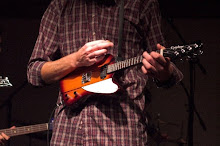A reworked version of Radiohead’s song “Creep” serves as the background to the just-out trailer for David Fincher’s latest, “The Social Network.” This brought up a lot of things for me that I wanted to address involving success and how it can be a good and also a regressive sort of thing.
“Creep” is a single off of Radiohead’s first album, Pablo Honey, and it was their first song to gain mainstream recognition especially in America. It received fairly extensive radio play, and is a song in Rock Band 2. All of this to say that it is probably a safe assumption that many people think of this song first when they think of Radiohead.
A somewhat backwards version of this occurred when Blur’s “song no. 2” became rather popular in America. The song comes off their fifth album, on which they dropped their former place of being one of the two major Britpop bands and transitioned to a more lo-fi alternative sound. You may not know the song by name, but if you heard a bit of it I would bet you know it. Its success was ironic, because the song is essentially Blur’s parody of American grunge bands.
Anyway, “Creep” in many ways personifies Radiohead’s first album: bold grungy British guitar-rock. Their second album, “The Bends” serves in many ways as an extension and refinement of their first. The case can be made that all of their albums since then are masterpieces of one sort or another. Radiohead accomplishes this, however, by rising above their original easy-to-pigeonhole genre. I think of myself as somewhat of an “album purist,” and although I don’t claim to be an authority, many would argue and I would agree that Radiohead produced in OK Computer and Kid A the best albums of their respective decades.
By OK Computer the band had started making disparaging comments about “Creep”. “Karma Police” refers to a radio playing popular, disposable music as “buzzing like a fridge.” Thom Yorke in an interview after the album was released said that “Creep” was just that, the background forgettable droning of alternative rock radio.
The interesting point is that without this initial successful single, who knows what would have happened to the band. It is impossible to tell what creative direction the band would have taken if they had muddled about in relative obscurity for years. I, for one, am happy with what came out of their success.

